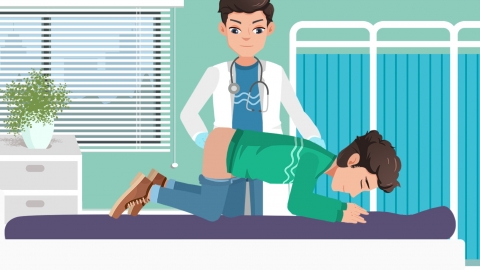What are the nursing measures for perianal abscess?
Nursing measures for perianal abscess generally include keeping the perianal area clean and dry, performing proper local sitz baths, adjusting diet appropriately, avoiding local pressure and irritation, and closely monitoring changes in the condition. Specific details are as follows:

1. Keep the perianal area clean and dry: Wash the perianal area daily with warm water, especially after defecation, to promptly remove fecal residue and prevent infection caused by irritation of the abscess site. Gently pat the area dry with a soft towel after washing, or use a hair dryer on a low setting to ensure the skin remains dry, thereby reducing opportunities for bacterial growth.
2. Perform regular local sitz baths: Under medical guidance, sitz baths using warm water or diluted potassium permanganate solution may be used, lasting 15–20 minutes each time, 2–3 times daily. Sitz baths help improve local blood circulation and relieve redness, swelling, and pain.
3. Adjust diet appropriately: Maintain a light, easily digestible diet rich in dietary fiber, such as vegetables, fruits, and whole grains. Ensure adequate daily fluid intake to promote intestinal motility and prevent constipation. Avoid spicy, greasy, and irritating foods that may aggravate the abscess during bowel movements.
4. Avoid local pressure and irritation: Wear loose, breathable cotton underwear and avoid tight synthetic garments to reduce friction and pressure on the abscess. Avoid prolonged sitting or standing. When sitting for long periods, use a soft cushion to reduce local pressure around the anus, preventing impaired blood flow and delayed resolution of inflammation due to continuous compression.
5. Closely monitor changes in condition: Observe daily the extent of redness and swelling, severity of pain, and presence of pus discharge at the abscess site. Also monitor body temperature. If symptoms such as spreading redness, increased pain, fever, or increased pus occur, this may indicate worsening of the condition.
When caring for a perianal abscess, strictly follow medical advice. If symptoms do not improve or abnormalities arise during care, do not attempt self-treatment; seek immediate medical attention. Patients who have undergone surgical treatment should also follow medical instructions for regular dressing changes to promote wound healing.









